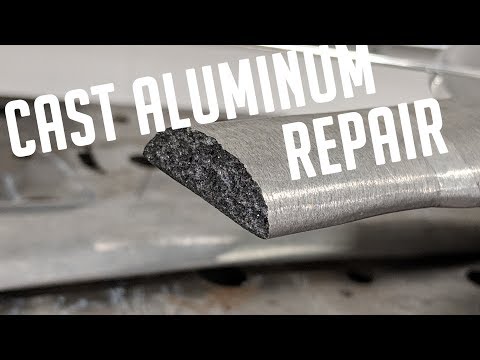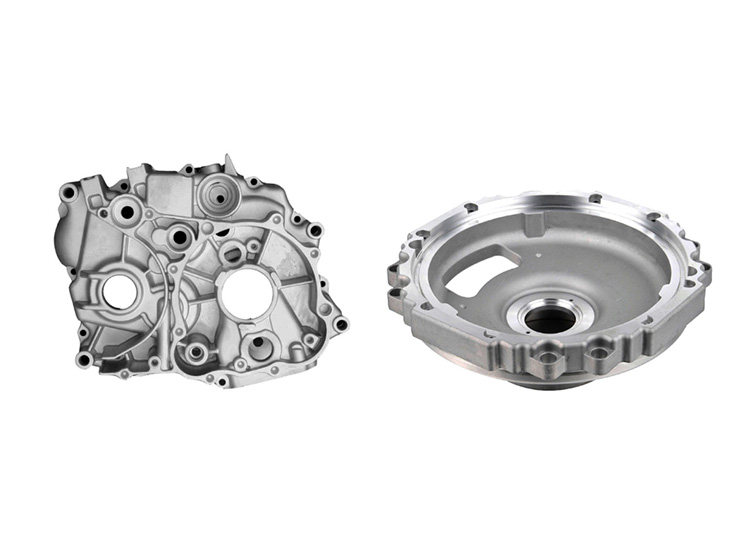The Definitive Guide for Alcast Company
The Definitive Guide for Alcast Company
Blog Article
The Alcast Company PDFs
Table of ContentsSome Of Alcast CompanyThe Best Strategy To Use For Alcast CompanyThe Definitive Guide to Alcast CompanyHow Alcast Company can Save You Time, Stress, and Money.Some Known Facts About Alcast Company.Alcast Company Fundamentals Explained
The subtle difference depends on the chemical content. Chemical Contrast of Cast Aluminum Alloys Silicon advertises castability by minimizing the alloy's melting temperature level and enhancing fluidity during casting. It plays a crucial duty in allowing elaborate mold and mildews to be loaded precisely. Additionally, silicon adds to the alloy's stamina and put on resistance, making it beneficial in applications where resilience is vital, such as automotive components and engine parts.It also boosts the machinability of the alloy, making it much easier to refine into finished products. In this method, iron adds to the total workability of light weight aluminum alloys. Copper increases electrical conductivity, making it useful in electrical applications. It likewise enhances rust resistance and includes to the alloy's general toughness.
Manganese adds to the strength of light weight aluminum alloys and enhances workability (Aluminum Casting). It is commonly used in wrought light weight aluminum items like sheets, extrusions, and accounts. The presence of manganese aids in the alloy's formability and resistance to splitting throughout construction procedures. Magnesium is a lightweight element that provides strength and impact resistance to light weight aluminum alloys.
Indicators on Alcast Company You Need To Know
It enables the production of lightweight parts with outstanding mechanical properties. Zinc improves the castability of light weight aluminum alloys and helps manage the solidification procedure during spreading. It improves the alloy's toughness and firmness. It is frequently located in applications where detailed shapes and fine details are essential, such as decorative castings and specific vehicle parts.

The key thermal conductivity, tensile toughness, yield strength, and prolongation differ. Among the above alloys, A356 has the greatest thermal conductivity, and A380 and ADC12 have the cheapest.
Alcast Company Fundamentals Explained

In accuracy spreading, 6063 is appropriate for applications where intricate geometries and high-quality surface area finishes are critical. Instances consist of telecommunication rooms, where the alloy's exceptional formability permits streamlined and aesthetically pleasing designs while keeping structural integrity. In the Lights Solutions sector, precision-cast 6063 components create sophisticated and reliable illumination fixtures that need detailed forms and good thermal efficiency.
The A360 exhibits remarkable prolongation, making it suitable for complex and thin-walled components. In accuracy spreading applications, A360 is fit for markets such as Consumer Electronics, Telecommunication, and Power Tools.
Some Known Factual Statements About Alcast Company
Its one-of-a-kind buildings make A360 a useful option for accuracy casting in these markets, enhancing product resilience and high quality. Light weight aluminum alloy 380, or A380, is an extensively made use of spreading alloy with a number of distinct attributes. It supplies excellent castability, making it an optimal choice for precision spreading. A380 exhibits good fluidity when molten, ensuring intricate and thorough mold and mildews are accurately reproduced.
In accuracy spreading, aluminum 413 beams in the Consumer Electronics and Power Devices markets. This alloy's exceptional deterioration resistance makes it a superb choice for outside applications, guaranteeing durable, resilient products in the pointed out my latest blog post sectors.
The 8-Second Trick For Alcast Company
As soon as you have actually decided that the aluminum pass away casting procedure appropriates for your job, a critical next action is selecting one of the most proper alloy. The light weight aluminum alloy you choose will significantly influence both the spreading procedure and the properties of the last item. As a result of this, you need to make your decision very carefully and take an educated strategy.
Identifying the most appropriate aluminum alloy for your application will certainly indicate considering a wide array of characteristics. These comparative alloy characteristics follow the North American Pass Away Spreading Organization's standards, and we have actually divided them into 2 categories. The initial category addresses alloy characteristics that influence the manufacturing procedure. The 2nd covers qualities affecting the properties of the last product.
The 6-Minute Rule for Alcast Company
The alloy you select for die casting directly influences a number of aspects of the spreading procedure, like exactly how easy the alloy is to deal with and if it is susceptible to casting issues. Warm cracking, likewise referred to as solidification splitting, is a typical die casting flaw for light weight aluminum alloys that can lead to interior or surface-level tears or cracks.
Specific aluminum alloys are much more at risk to hot fracturing than others, and your selection ought to consider this. Another common problem discovered in the die spreading of aluminum is die soldering, which is when the cast stays with the die wall surfaces and makes ejection difficult. It can damage both the cast and the die, so you ought to look for alloys with high anti-soldering properties.
Deterioration resistance, which is currently a remarkable attribute of aluminum, can differ significantly from alloy to alloy and is an important particular to take into consideration depending on the ecological problems your item will be exposed to (aluminum metal casting). Put on resistance is another residential property generally sought in light weight aluminum items and can separate some alloys
Report this page